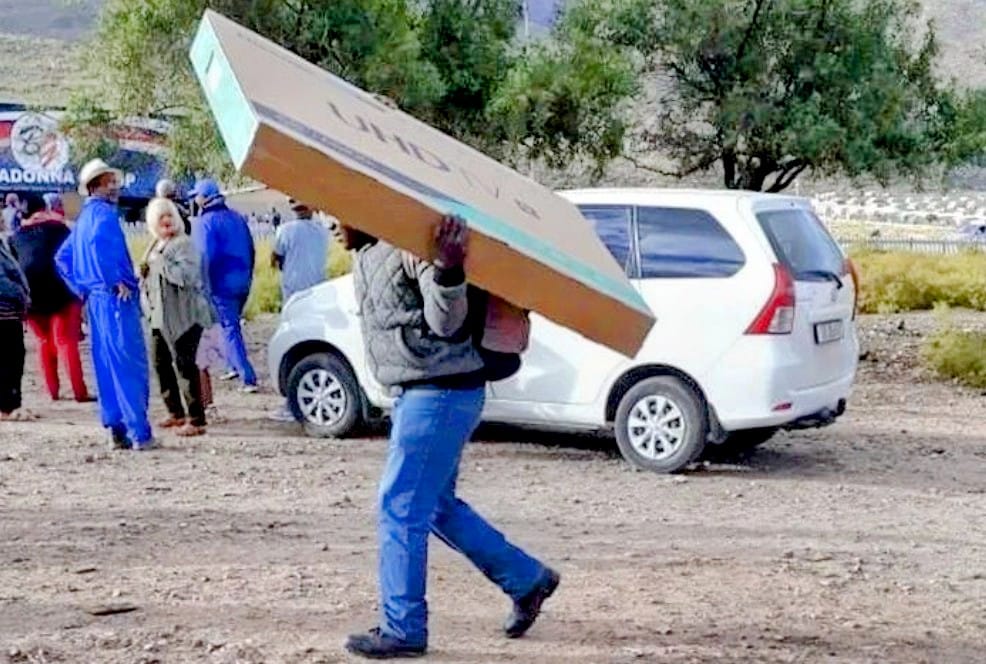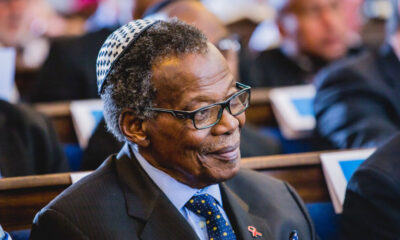
Banner

Durban Jews – strong two years after riots
It has been two calamitous years for the small and ageing KwaZulu-Natal (KZN) Jewish community, which has been battered by a series of natural and man-made events, but it has come through resilient and united, residents say.
Aside from the devastating impact of the COVID-19 pandemic, the province was beset with apocalyptic and deadly riots in July exactly two years ago this week, followed by an onslaught of catastrophic flash floods, crippling loadshedding, and contaminated beaches.
It has been one thing after another.
The tight-knit community has felt the loss of about six families to emigration, the majority having made aliya for various reasons, and one or two have semigrated to places like Cape Town. But, for the most part, Jewish life in Durban is “alive and thriving”, they say.
In spite of the challenges, the 1 600-odd Jewish souls have pulled together not only for their own well-being but for the betterment and upliftment of the wider community, remaining steadfast and positive.
“The province isn’t called ‘KwaZilience’ for nothing,” said resident and active community member, Alana Baranov, the political and social justice liaison for the national office of the South African Jewish Board of Deputies (SAJBD). “The spirit, generosity, and determination of the people has really shown through” in spite of the challenges, Baranov said. “Our small but vibrant community has gone above and beyond not only to assist each other but to be a part of the wider disaster relief and humanitarian efforts for those most affected by the riots and floods. No matter how difficult things have been, we know that we have many privileges not afforded to others, and our community has a responsibility to put the Jewish principles of tikkun olam and tzedakah into action.”
This week, on the anniversary of the 2021 July riots, one of the darkest periods in recent history, which shook South Africa to its core following the imprisonment of former President Jacob Zuma, fears of further unrest have played on people’s minds. The Road Traffic Inspectorate described the torching of numerous trucks on the N3 and N4 highways as “barbaric”, co-ordinated attacks on the logistics sector – all hauntingly reminiscent of the events that transpired from 9 to 18 July 2021 in KwaZulu-Natal and parts of Gauteng. President Cyril Ramaphosa and other senior government officials referred to the attacks as “economic sabotage”.
Susan Abro, the president of the SAJBD KZN Council, said there hadn’t been extensive numbers of community members leaving the province for greener pastures.
“We haven’t had a mass exodus from here. There are community members who have made aliya, but not for the reasons such as floods or riots. We’re a small and ageing community, but we’re very active. As the late John Moshal said, “We always punch above our weight”.
“During the riots, the greater community came together regardless of race or religion, and since then, the same camaraderie exists. One might say the floods cleared a path for ubuntu. We’re an extremely resilient and positive community which takes care not only of our own, but the greater KZN community. Especially now, with the recent flooding, we’re incredibly grateful for the assistance received by local community members as well as the SAJBD national board,” she said.
Recent events have taken a financial toll on many in the community reliant on Durban Jewish Social Services for assistance. Director Janine Saperson said 10% of the community required some form of help.
“We’re assisting new clients every month. People we didn’t even know about are coming to us for help. Many have lost their businesses, their jobs, and are really struggling, so they have reached out to us. We’ve never seen as many as this,” she said.
There’s also an increase in the number of people experiencing hardship in the wider community.
Said Tanya Altshuler, who heads up The Angel Network in KwaZulu-Natal, “The province has faced an onslaught of challenges which has resulted in an increase of people needing just the basics to survive. Homes have been destroyed; shops have been destroyed and need to be re-stocked; and the poor have been devastated by ongoing trauma. It’s all very sad.”
Baranov, who is also the chairperson of the newly established Chaverim Community Hub in Durban, said that although the community had shrunk to emigration, “Jewish life in Durban is thriving.”
“I’m thrilled to be a part of the new Chaverim Community Hub, which was formed in November last year. We’re a community, religious, and cultural hub for Jewish life in KwaZulu-Natal, and are focused on building an active and engaged Jewish community. We’re a place where every individual can connect to their Jewish identity in whichever way they choose and at all stages of life. We have hosted an array of events in recent months, including the Durban Jewish Fun Run/Walk; Family Sports Day; children’s Shabbat services and brocha; a guest-speaker programme; Shabbat dinners; Shabbatons; and women’s shiurim. We have lots of plans for the future.”
Resident Hayley Lieberthal who edits Jewish monthly magazine Hashalom, said, “It has been said over and over again that we’re a resilient community because it’s true. We remain committed and we like to look on the bright side. We’ve been through a lot but we’ve been through it together. We’re small but we make it work when it counts.”
Rabbi Gilad Friedman, the director of the Umhlanga Jewish Centre and head of Jewish Studies at Akiva College in Izinga, said Jewish communal life was “stronger than ever”.
“Since the end of the pandemic, shul attendance is larger than before, with people looking for a sense of community and a social environment and making an effort,” he said. “No-one is running away because of the state of affairs. If anything, Jewish life is better than ever. We have lost a few, but just this past week, someone moved to town and joined the shul. Being a smaller community, people feel they can make a difference. Durbanites are kind, warm people – it’s not just our weather. We focus on the magic not the tragic.”
Sadly, those affected by the July 2021 riots have yet to see justice for loved ones lost or properties destroyed, and those who masterminded the violence still walk free.










